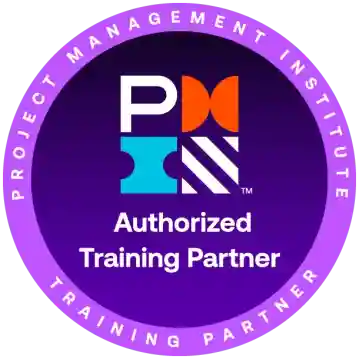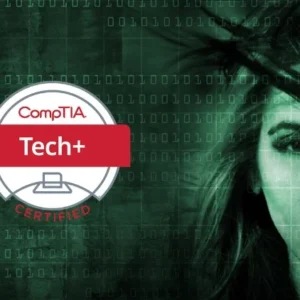Gain Proficiency in Linux CLI and Kali Security Tools
Mastering the Linux command-line interface is a critical step toward becoming a proficient system administrator, security engineer, or DevOps professional. This Linux Mastery CLI and Kali Commands Mock Tests course with 2 practice tests and 180+ questions equips you with hands-on practice, real-world scenarios, and advanced Kali Linux command usage through timed, scenario-based practice tests and labs. Whether you’re preparing for certification, job interviews, or boosting your practical Linux skills, this Linux course delivers the tools and experience you need.
By Linux CLI and Kali course completion, you’ll possess command-line agility, scripting efficiency, security tool proficiency, and diagnostic skills to excel in Linux-based roles. Whether you’re aiming to succeed in certification exams, job interviews, or real-world system and security administration, this Linux CLI and Kali Practice Tests course delivers strong command-line competence and confidence.
Enroll now to master Linux and Kali commands with practical, timed, scenario-based learning.
Gururo is a PMI Authorized Training Partner
At-a-glance
Best for
- IT support professionals
- Penetration testers and security students
- DevOps engineers
- Anyone Serious
Why Gururo?
- Lowest Cost
- PMI Authorized Training Partner (ATP)
- 24*7 Support
- 365 days access
Course Details
- 2 full-length Linux and kali mock exams
- 180+ challenging questions
- Instant Access
- Certificate of Completion
Highlights
- Realistic Exam Simulation
- Aligned with actual exam blueprint
- Progress Tracking & Review option
- Unlimited Attempts
What You’ll Learn
- Navigate and manipulate the Linux filesystem using essential commands like ls, cd, find, and grep.
- Manage files and directories with I/O tools such as cp, mv, rm, chmod, chown, and symbolic links.
- Control processes and services via commands including ps, top, kill, systemctl, and job control.
- Securely handle user and group accounts using useradd, passwd, usermod, and /etc/sudoers.
- Utilize text editors (nano, vi) and text-processing tools (awk, sed, cut) for configuration and scripting tasks.
- Deploy advanced networking commands like ip, netcat, nmap, ifconfig, and iptables on Kali Linux.
- Analyze logs and system health using journalctl, dmesg, tail, and disk monitoring tools.
- Automate tasks using shell scripting fundamentals: variables, loops, conditionals, and cron jobs.
- Perform system hardening and security assessments using Kali-specific tools such as sudo, ssh, metasploit, burpsuite.
- Execute commands and configurations under timed, scenario-based conditions to simulate real-world and certification testing.
What you'll gain:
- File system control: Navigate, manage, and protect files/directories via CLI.
- Process and service insight: Monitor, control, and automate background tasks and services.
- Networking proficiency: Analyze and configure networks, capture traffic, and perform secure remote connections.
- Log analysis and diagnostics: Interpret system logs for troubleshooting and health monitoring.
- Shell scripting confidence: Write scripts to automate tasks and schedule recurring operations.
- Security tool usage: Execute reconnaissance, enumeration, and exploitation with Kali toolsets.
- Root and privilege management: Securely manage permissions, elevate privileges, and maintain auditability.
- Command-line speed: Achieve fluency under time pressure through repeated practice.
- Technical reasoning ability: Explain how commands work and troubleshoot when things go wrong.
- Certification-readiness: Build the experience foundation to pass Linux and security-focused certifications.
Course Requirements / Prerequisites
- A computer (or VM) running a Linux distribution, preferably Kali Linux for command exposure.
- Basic familiarity with terminal usage and Linux installation processes.
- Willingness to practice hands-on commands and record results in lab assignments.
- Access to a test VM or isolated environment for executing administrative commands.
- A mindset geared toward repetition and experimentation for mastery.
- Access to reference materials: man pages, online documentation, or cheat sheets.
- Commitment to build simple shell scripts and automate everyday tasks.
- Openness to explore security tools included with Kali, such as nmap, ssh, and metasploit.
- No prior Linux system administration experience necessary—course begins with fundamentals.
- Readiness to track time and document results during scenario-based assessments.
Who Should Take This Course?
- Beginners to Linux seeking foundational skills in CLI navigation and file management.
- IT support professionals transitioning to Linux system administration roles.
- Penetration testers and security students wanting hands-on with Kali tools and commands.
- DevOps engineers aiming to leverage Linux shell and scripting proficiency.
- System administrators wishing to refine command-line troubleshooting and automation.
- Freelancers and consultants who administer Linux systems in production.
- Cybersecurity professionals needing practical command fluency in Kali for security assessments.
- Career enhancers preparing for Linux certification exams (e.g., Linux Foundation, CompTIA Linux+).
- Students and self-taught learners looking to progress from GUI to full CLI control.
- Professionals preparing for CLI-focused interviews or technical challenges, needing timed practice.



















